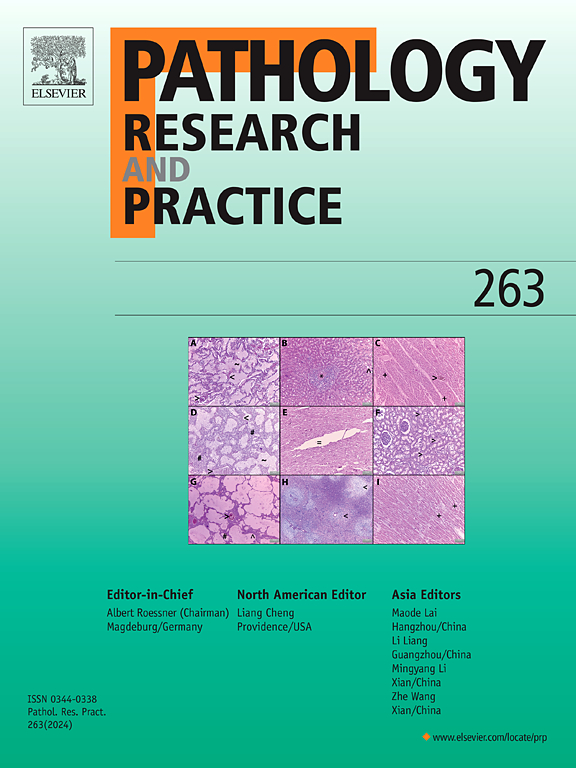Recent advances in stem cell approaches to neurodegeneration: A comprehensive review with mechanistic insight
IF 2.9
4区 医学
Q2 PATHOLOGY
引用次数: 0
Abstract
The progressive nature of neurodegenerative diseases (NDs), such as Parkinson's disease, Alzheimer's disease, Huntington's disease, and amyotrophic lateral sclerosis, presents substantial problems because current treatments are still obscure. Stem cell-based treatments are emerging as a viable solution to address the significant gaps in treating these severe diseases. This study provides a comprehensive analysis of the latest advancements in stem cell research, focusing on the treatment of NDs. Various types of stem cells, such as adult, induced pluripotent, and embryonic stem cells, and their potential applications in immunomodulation, neurotrophic factor release, and neuronal development are also discussed. Recent clinical studies reveal outcomes, challenges, and solutions, with advancements in disease-specific neural cell production, gene editing, and improved stem cell transplantation transport strategies. The review discussed future perspectives on developing more effective stem cell-based interventions. Biomaterials are being used for cell distribution and personalized medicine techniques to improve treatment outcomes, while exploring stem cell treatments for NDs and identifying areas for further research.
干细胞治疗神经退行性疾病的最新进展:具有机制洞察力的综合综述
神经退行性疾病(NDs),如帕金森病、阿尔茨海默病、亨廷顿病和肌萎缩性侧索硬化症,其进行性本质呈现出实质性的问题,因为目前的治疗方法仍然模糊不清。以干细胞为基础的治疗正在成为一种可行的解决方案,以解决治疗这些严重疾病的重大差距。本研究全面分析了干细胞研究的最新进展,重点是nd的治疗。各种类型的干细胞,如成体干细胞、诱导多能干细胞和胚胎干细胞,以及它们在免疫调节、神经营养因子释放和神经元发育方面的潜在应用也进行了讨论。最近的临床研究揭示了结果、挑战和解决方案,在疾病特异性神经细胞产生、基因编辑和改进的干细胞移植转运策略方面取得了进展。这篇综述讨论了开发更有效的基于干细胞的干预措施的未来前景。生物材料正在被用于细胞分布和个性化医疗技术,以改善治疗效果,同时探索NDs的干细胞治疗并确定进一步研究的领域。
本文章由计算机程序翻译,如有差异,请以英文原文为准。
求助全文
约1分钟内获得全文
求助全文
来源期刊
CiteScore
5.00
自引率
3.60%
发文量
405
审稿时长
24 days
期刊介绍:
Pathology, Research and Practice provides accessible coverage of the most recent developments across the entire field of pathology: Reviews focus on recent progress in pathology, while Comments look at interesting current problems and at hypotheses for future developments in pathology. Original Papers present novel findings on all aspects of general, anatomic and molecular pathology. Rapid Communications inform readers on preliminary findings that may be relevant for further studies and need to be communicated quickly. Teaching Cases look at new aspects or special diagnostic problems of diseases and at case reports relevant for the pathologist''s practice.

 求助内容:
求助内容: 应助结果提醒方式:
应助结果提醒方式:


